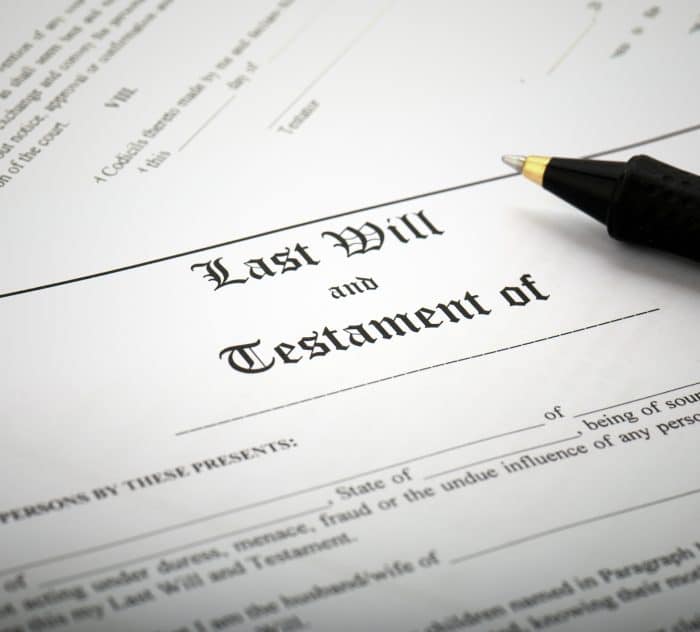Recent North Carolina legislation addresses the electronic storage of attested written wills. Although electronic wills themselves are not yet fully authorized under North Carolina law, these recent statutory changes allow a copy of a paper will that has been electronically stored, then properly certified in paper form, to be admitted to probate. The new law is intended to help alleviate the common problem that arises when an original will cannot be found for probate after a testator’s death but a signed copy exists. The new legislation goes into effect January 1, 2026, and applies to wills stored electronically on or after that date, regardless of when the will was signed.
The new legislation, part of Session Law 2025-33 enacted June 30, 2025, creates a new Article entitled “Electronic Storage of Attested Written Wills by an Attorney” under Chapter 31 of the North Carolina General Statutes. Under the new law, on or after January 1, 2026, a North Carolina licensed attorney may, at the testator’s direction, create an electronic record of the testator’s will. Typically, the attorney will scan the original executed will into the electronic file. The attorney then signs a notarized affidavit (herein, the “Storage Affidavit”) stating: (i) the electronic record of the will is a complete, true, and accurate copy of the written will; (ii) the testator expressly authorized the attorney to create an electronic record of the attested written will; and (iii) the testator was advised that creating the electronic record eliminates the option of revocation by physical act. Revocation by a later will or codicil remains an available option for the testator; it is only revocation by physical act that is eliminated.
Under the new legislation, a North Carolina attorney may prepare a certified paper copy of the attested written will that was stored as an electronic record at any time after the electronic record is created. The attorney would then sign a certification in the form of a notarized affidavit (herein, the “Certified Copy Affidavit”) that states that the paper copy is a complete, true, and accurate copy of that electronically recorded will. The printed electronic copy of the will along with the original Certified Copy Affidavit would be filed with the Clerk of Superior Court after the testator’s death, similar to how an original will is filed now, and thereafter probate would continue as normal.
The intent of this new legislation is to help solve the problems that arise after the testator’s death when their original will is lost or accidentally destroyed but a signed copy of the will exists. Often, the attorney who prepared the original will has an electronic scanned version of the signed will. Previously, probating a copy required a formal Petition to Probate a Copy of Lost Will to rebut the common law presumption that a lost will had been destroyed with the intent to revoke it. This new legislation eliminates the presumption and any deemed revocation when the new statutory steps are followed.
Some practitioners may not be comfortable probating a certified paper copy of an electronically stored will. If the original will cannot be found, there is a possibility that the testator physically destroyed the will with the intent to revoke it, and probating a copy would be contrary to the testator’s wishes. However, under the new legislation, if the testator acknowledges that the ability to revoke the attested written will by physical act has been eliminated by virtue of the attorney keeping the stored electronic copy of the will pursuant to the statute, then this concern may at least be partially mitigated. Presumably, best practices would mandate that the testator sign an acknowledgment of the waiver of revocation by physical act.
Even if attorneys may not be fully comfortable probating an electronic copy of the will because of the possibility that the testator may have physically destroyed the original will with the intent to revoke it, attorneys in North Carolina are likely going to have to change their standard office procedure. If the attorney who initially prepared and oversaw the execution of the original will chooses not to create the Storage Affidavit, or at least ask the testator if the testator wants the attorney to create the Storage Affidavit, after the testator’s death if the original will cannot be found then the old procedure of filing a Petition to Probate a Copy of Lost Will would need to be used, which is time-consuming and adds extra costs to the estate administration. The Storage Affidavit must be prepared during the testator’s life at the testator’s direction. If it is not, then probating the electronic copy is not an option. If the attorney who prepared the will and oversaw its execution could have saved the estate administration time and fees by simply asking the testator whether the testator wanted the attorney to electronically store the will pursuant to the new legislation and then sign the corresponding affidavit, then it may be best practice for the attorney to do so.
Effective January 1, 2026, this legislation provides a new option in North Carolina for will storage and probate. Both attorneys and clients should prepare now. For attorneys, this means examining internal office procedures and developing protocols for electronic storage and client consent. For individuals, this means considering whether electronic storage under the new law suits your needs and understanding the implications of waiving the right of physical revocation before making this decision.



